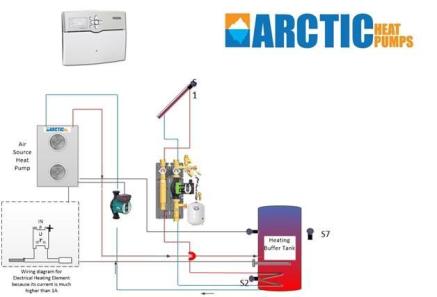Heat pump systems have the capability of heating as well as cooling. The system utilizes electricity to pump out heat from a cool space to a warm one to move warm air indoors during the winters and vice versa during the summers. So if you are thinking of incorporating heat pumps at your homes but confused in finding the right one, then the following post is just for you!
The heat pump models of today are more efficient and are capable of reducing heating costs by almost 50% when compared to electric furnaces. Following are the different types of heat pumps available today.

Air Source Heat Pump
An air source heat pump utilizes outside air as a heat exchange medium. It is the commonly used and inexpensive heat pumps. These function well in moderate climates.
Water Source Heat Pump
A water source heat pump uses water instead of air to dissipate heat. Such a system requires well, lake or any other water source to operate, hence are not used commonly.
Ground Source Heat Pump
Ground source heat pumps also known as the geothermal heat pumps make use of the thermal energy stored underground to transfer heat. Due to constant ground temperature, these systems are more efficient. But the installation is complicated and a costly affair.
Solar Heat Pumps
Solar heat pumps integrate solar panels as a power supply for the system. It is used in conjunction with air and ground source heat pumps. With this solar geothermal setup it is possible to heat or cool your entire home using renewable energy!
Besides, the aforementioned heat pumps there are other hybrid heat pump systems as well like ground and air source combo heat pumps and heat pump and gas boiler combination.
Conclusion:
Arctic Heat Pumps provide industry leading and the most energy efficient air source heat pump. To know more visit https://www.arcticheatpumps.com/heat-pump-with-solar.html


- -25C heat pump
- air source heat pump
- chiller for pools
- Chillers for Swimming Pools
- cold weather heat pumps
- Heat Load Design
- Heat Load Design
- Heat Loss Design Services
- Heat Pump
- Heat Pump Cold Weather
- Heat Pump for Hot Water
- Heat Pumps
- heat pumps in Nova Scotia
- Hydronic Air Handler
- Inverter Heat Pump
- Inverter Heat Pump
- radiant floor cooling
- radiant floor Design
- radiant floor Design
- radiant floor Design
- Spa Heat Pump
- Swimming Pools